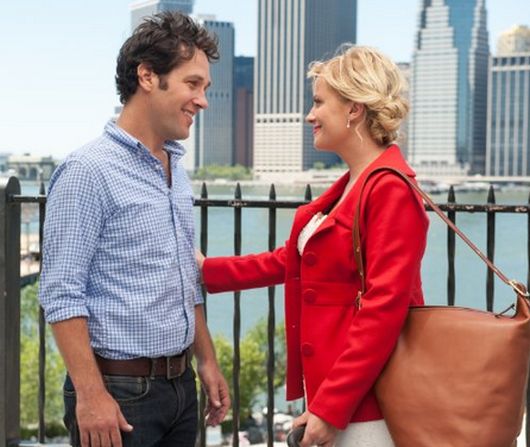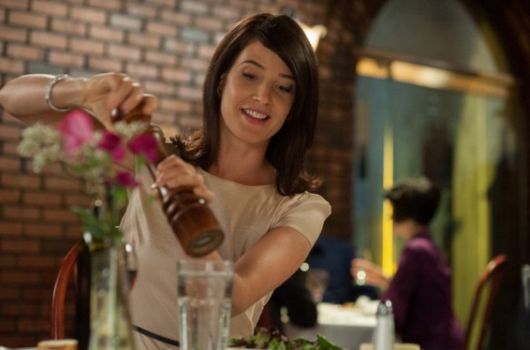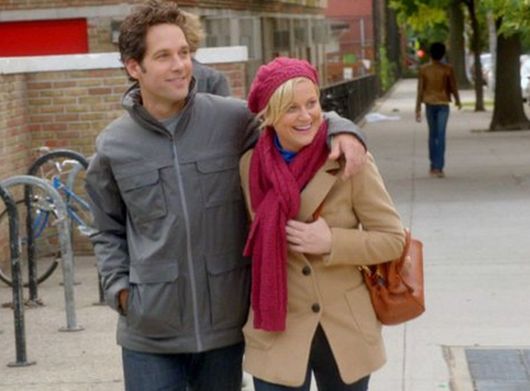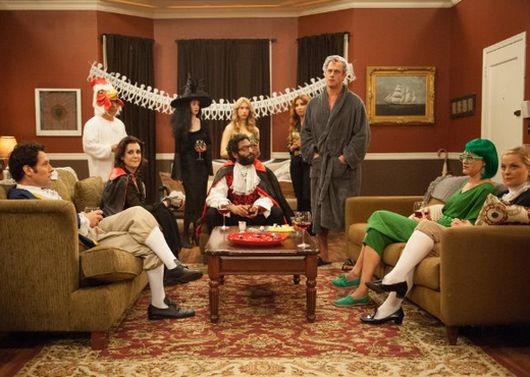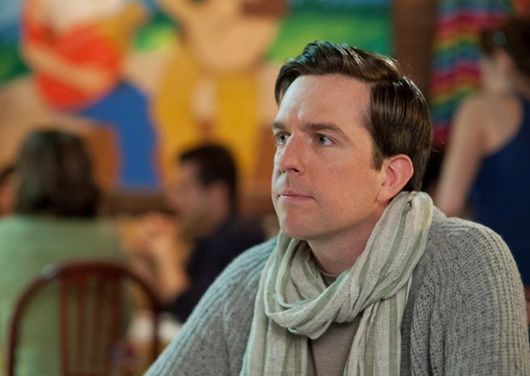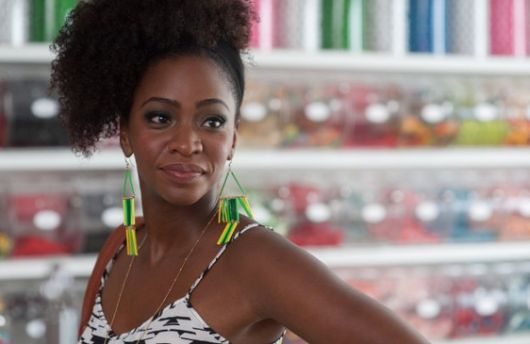 FILM
FILM In Which Michael Fassbender Brought The Whole Band
 Tuesday, September 16, 2014 at 12:20PM
Tuesday, September 16, 2014 at 12:20PM 
Fassbending
by ELEANOR MORROW
Frank
dir. Lenny Abrahamson
95 minutes
In Frank Michael Fassbender has a line serrating his upper hair from his lower hair. It is the impression of the cartoon head he wears onstage as a performer in an experimental rock group for the first 70 minutes of Frank. Near the end of the film we meet Frank's parents and we learn is from the God that brought you the mentally unstable Daniel Johnston (he once crashed a plane and survived) or the astonishingly honorific Dr. Dre. I think Alanis Morisette has sclerosis?
Something is always like something else.

Frank features ensemble experimental music created by a group of actors, which was the entire reason for the failure of the John Cage musical. The songs are uniformly bad until the last number, where Fassbender bleats 'I love you all' while staring away from the camera. Maggie Gyllenhaal attempts eye contact for a few seconds during this improvised song, but it is never achieved.

Robbed of his ability to make that expression where he shows off his gums, Fassbender attempts to construct Frank purely out of his movements. The best part of Frank is when Fassbender runs anywhere - his legs revolve like those of Bugs Bunny or the Tasmanian Devil. You can tell it is Fassbender in the head the entire time, even if no one told you. You would just be like, That's the guy from everything, which is what we say before a talented artist achieves his defining role, like Tom Cruise in Jack Reacher.
At first Frank seems like a musical genius, but once you hear his songs, that possibility fades away. Frank has the worst music of any movie.

Gyllenhaal too is focused on her physicality. Left as the only interesting thing to look at in a group of guys who look like they were taken from central casting for a Freddie Mercury biopic, she writhes and poses in equal measure. She has aged very well and is only now being cast in parts appropriate for her dashing, tilting artifice. She can keep something - a scene, a moment - alive long after you believed it was dead, and show the camera how it has been changed by being resurrected.

The only time the film is quiet or at rest is when the band's manager is tweeting about their album recording session or tumbling about a really moving artistic moment. The tumblr and twitter posts appear onscreen, just so you're 100 percent sure that none of this is the least bit authentic. All of them are super-cringeworthy, the ones that are meant to be and the ones that aren't meant to be. Telling the difference is a job for scientists, artisans, or psychologists. The only thing that is certain is that this movie is not a satire, unless...would that make it better?
Having never approached the sun, you can be certain Frank never tried to imitate the actual creative process. It just tries to stand in the light nearby.

The point of Frank, I guess, is that nothing is authentic, especially in, but not limited to, the musical world. John Cage was possibly authentic, but no one else, especially not Lou Reed or Andy Warhol or Mark Kozelek or Gary Lutz or Marlon Brando or Junot Diaz or Stanley Fish or Javier Bardem. They were all in soap operas. You will know the real thing when you see it.
Eleanor Morrow is the senior contributor to This Recording. She is a writer living in Washington D.C. You can find an archive of her writing here.

"Armpit" - Ashrae Fax (mp3)
"Daddystitch" - Ashrae Fax (mp3)































